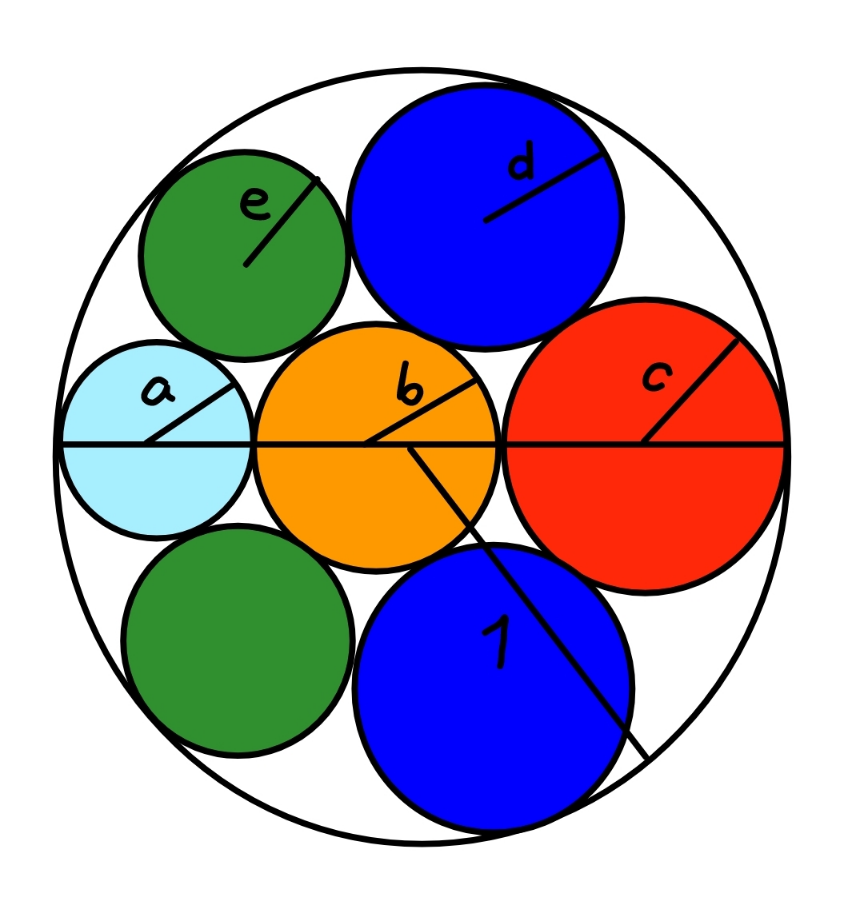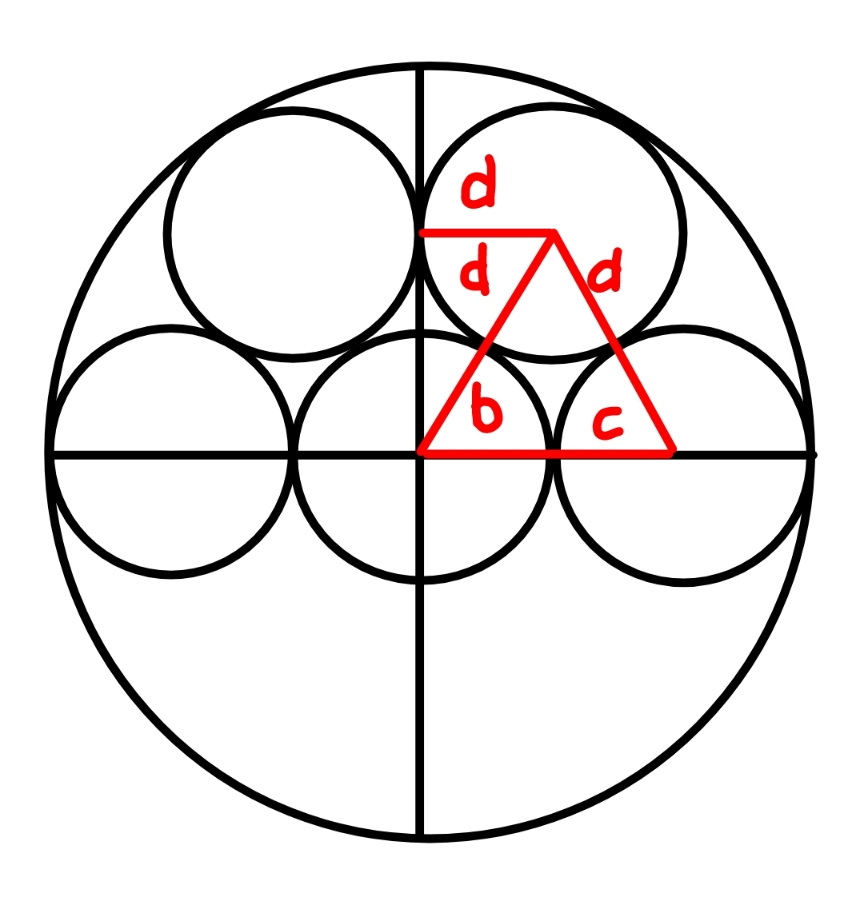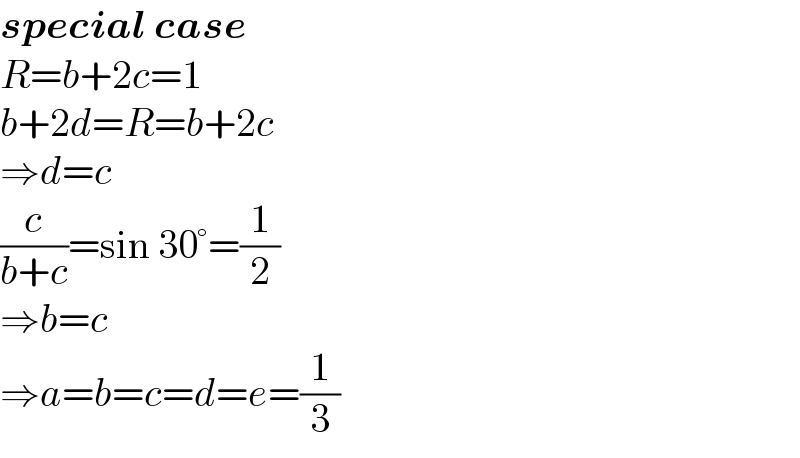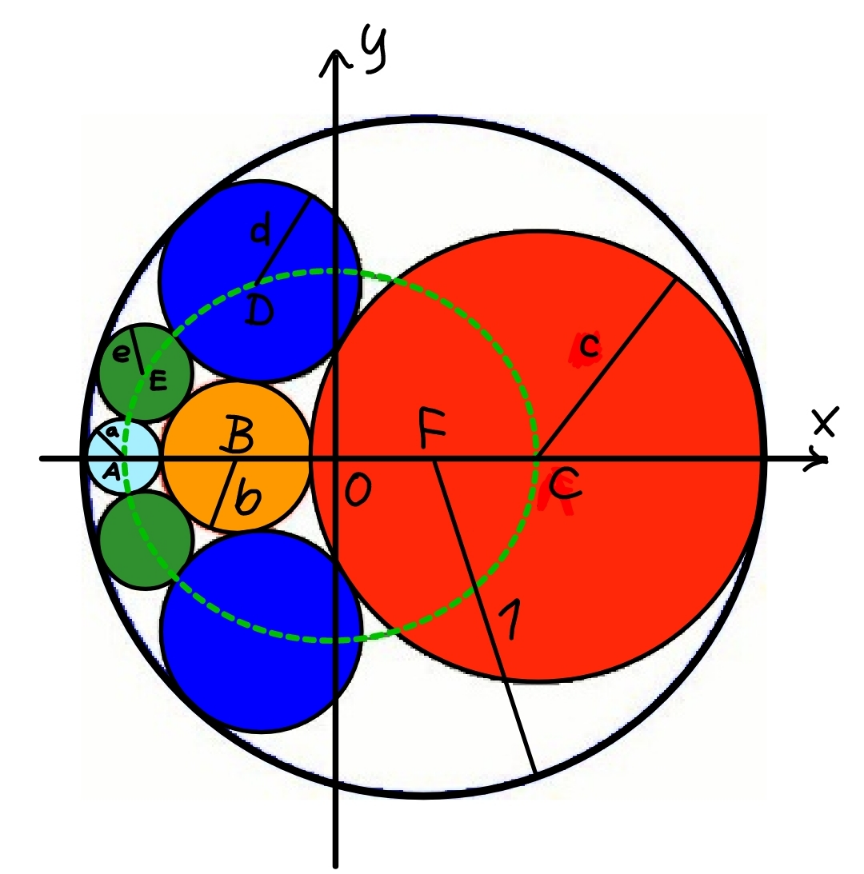
Question and Answers Forum
Question Number 185816 by mr W last updated on 28/Jan/23

Commented by mr W last updated on 28/Jan/23

Answered by mr W last updated on 28/Jan/23

Commented by mr W last updated on 28/Jan/23

Answered by ajfour last updated on 28/Jan/23
![E[−(1−e)cos θ, (1−e)sin θ] D[(1−d)cos φ, (1−d)sin φ] {1−a−(1−e)cos θ}^2 +(1−e)^2 sin^2 θ =(a+e)^2 ⇒ (1−a)^2 −2(1−a)(1−e)cos θ =(a+e)^2 −(1−e)^2 ⇒ cos θ=((1−a−e−ae)/(1−a−e+ae)) similarly cos φ=((1−c−d−cd)/(1−c−d+cd)) ...](Q185827.png)
Answered by mr W last updated on 29/Jan/23

